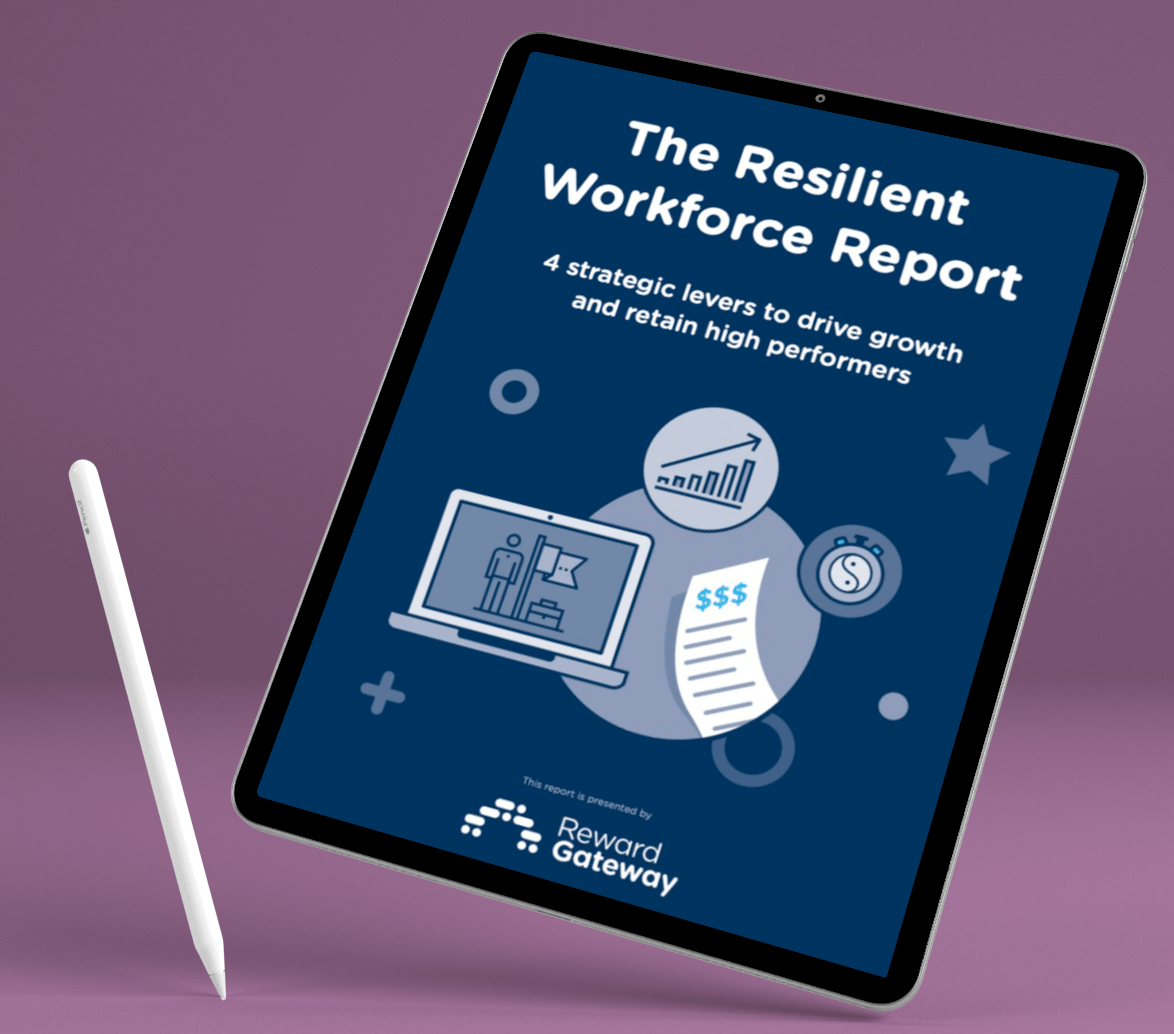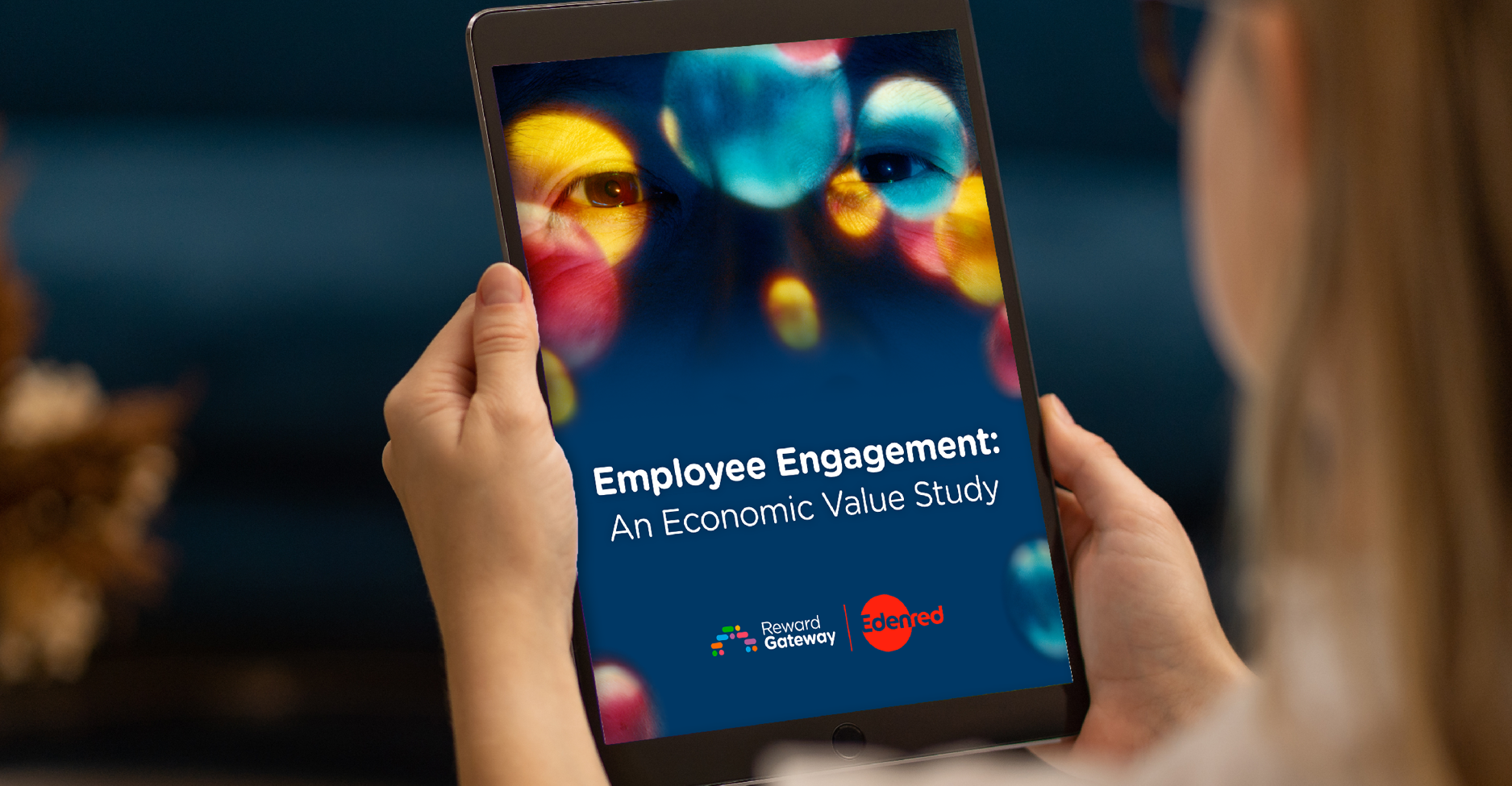In today’s competitive business landscape, motivated and engaged employees are the lifeblood of any successful organisation. While financial rewards have long been a popular method of motivating employees, it’s important to recognise the power of non-financial rewards in driving employee engagement and success.
Reward Gateway research found 70% of employees say that morale and motivation would improve if managers would simply say “thank you” more often. |
A survey conducted by SHRM found that 79% of employees prefer recognition and rewards other than financial incentives as a form of motivation.
In this blog post, we’ll explore the benefits of non-financial rewards to motivate employees and offer you 10 inspiring examples to consider implementing within your organisation. From recognition and appreciation to flexible work arrangements and career development opportunities, these non-financial rewards can transform your workplace dynamics and help your employees reach their full potential.
What are non-financial incentives and their benefits?

Non-financial incentives are rewards and recognition beyond monetary compensation that motivate and satisfy employees.
It includes various forms of perks and opportunities. There are several benefits to these incentives, including:
- Increased employee satisfaction and engagement
- Enhanced loyalty and reduced turnover rates
- Improved productivity and performance
- Promoting creativity and innovation
- Fostering a positive work environment and culture
- Building a sense of pride and accomplishment
10 best non-financial rewards to motivate employees
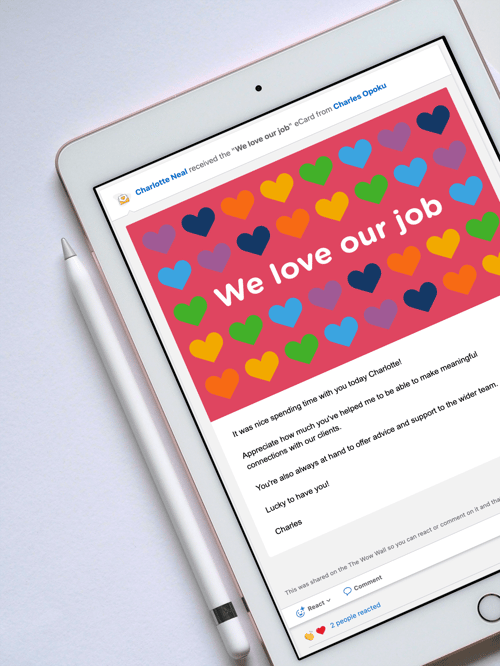 1. Public recognition and appreciation
1. Public recognition and appreciation
It’s human nature for employees to crave recognition for their hard work and accomplishments. For starters, employers can put into place an “Employee of the Month” program to publicly acknowledge outstanding performance. Plus, consider giving shout-outs in company newsletters or meetings and even mentioning their accomplishments on social media platforms. Showing appreciation in various ways helps boost morale, foster a sense of pride and motivate employees to excel.
At RG, we love peer-to-peer eCards because they’re fast and easy to send, they’re fully customisable to match your company’s brand and values and they emphasise the impact of the action being celebrated. It’s always nice to hear ‘thank you,’ and eCards are a fun, dynamic – and social media–like – way to recognise and reward employees. And the impact lasts.
2. An extra day off
Offering employees a surprise day off gives them time to recharge, spend time with loved ones, enjoy a hobby or simply relax and rejuvenate. Making this extra day flexible allows them to time it to important events like a child’s birthday or their anniversary and make the reward even more meaningful to them.
Not only does giving additional vacation days reward going the extra mile, it also promotes commitment to better work-life balance and personal wellbeing.
3. Opportunities for professional development and career growth

Recognising the ambition of your employees and giving them opportunities to grow is important.
Invest in your employees’ growth by offering various training and workshop opportunities to develop relevant skills. Encourage participation in mentoring programs, where experienced team members can guide and support their colleagues. Mixing up the demographics and levels of seniority can also improve relationships and workplace culture.
4. Flexible work arrangements
In today’s fast-paced and digital world, work-life balance is more relevant than ever. Offer remote work options, flexible hours or compressed workweeks to give employees more control over their schedules. Job-sharing opportunities, where two employees split responsibilities, can also be beneficial. Allowing for greater flexibility enables employees to manage their personal obligations effectively while maintaining productivity and job satisfaction.
 5. Ask for new ideas, feedback and suggestions
5. Ask for new ideas, feedback and suggestions
Actively seek input from employees by creating channels for them to share their ideas and offer feedback and suggestions. This non-financial reward shows that their opinions and insights are valued, creating a sense of ownership and empowerment. Keep in mind that the follow through here is critical – employees should understand what you’ve implemented and how their feedback has been incorporated to show that they’ve really listened. Creating a continuous feedback culture enables creative ideas and leads to higher innovation and problem-solving.
6. Work-life balance support
We know that yes, work is important. But so is your employees’ lives outside of work, especially when it comes to their family and their own personal goals.
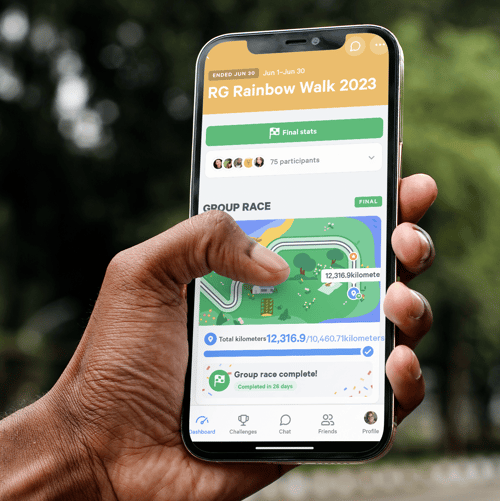 Prioritise employee wellbeing by providing wellness programs and fitness perks. Offer paid time off for volunteering or pursuing personal interests. Implement family-friendly policies, such as flexible parental leave or on-site childcare facilities. These initiatives help employees maintain a healthy work-life balance, which leads to increased satisfaction, reduced stress levels and higher productivity. In simple words, healthy employees make healthy contributions.
Prioritise employee wellbeing by providing wellness programs and fitness perks. Offer paid time off for volunteering or pursuing personal interests. Implement family-friendly policies, such as flexible parental leave or on-site childcare facilities. These initiatives help employees maintain a healthy work-life balance, which leads to increased satisfaction, reduced stress levels and higher productivity. In simple words, healthy employees make healthy contributions.
You can also host or sponsor group fitness challenges like step goals or virtual collaborative races. In June, RG partnered with MoveSpring, a Reward Gateway company, for the RG Rainbow Walk, where 75 RGers and MoveSpringers alike walked, jogged and ran more than 12,000 kilometers – that’s over 16 million steps! – with the goal of donating £780 to four LGBTQ+ charities for Pride Month.
7. Employee empowerment and autonomy
Absolutely nobody likes to be micromanaged – and studies have shown that it actually damages morale and productivity. Showing that you trust your employees is important. Trusting employees with decision-making authority in their roles boosts their morale and motivation. (Remember, you hired them because they demonstrated the competence and experience to do the job!) Encourage them to contribute their ideas and provide opportunities for innovation and creativity. Adopting a trust-based management approach develops a sense of ownership, empowerment and autonomy. This results in higher job satisfaction and productivity.
8. Team building and social activities
Life is all about the people around us, and it’s possible to take it to the next level by ensuring a positive social environment in the workplace. Foster a sense of friendship and teamwork by organising company outings and team-building events.

These activities create opportunities for employees to bond, collaborate and develop stronger relationships with each other.
Plus, encourage the formation of social clubs or interest groups within the organisation, where employees with shared hobbies or interests can connect and engage in non-work-related activities like fitness, sports, crafting or board games. Overall, this allows the workplace to be more meaningful and enjoyable.
9. Challenging assignments and special projects
Assigning employees challenging and meaningful projects keeps them engaged and allows them to showcase their skills and talents. This paves the way for future leaders. Providing opportunities to work on cross-functional or high-profile projects can be highly motivating, as it shows trust in their abilities and offers a chance for professional growth and recognition.
10. Work environment enhancements
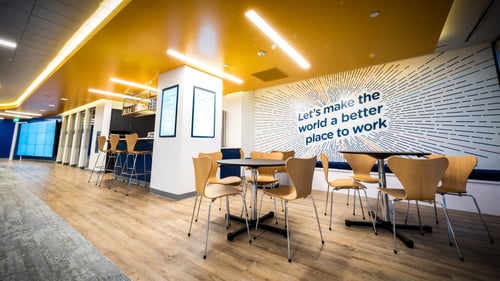
Environment matters – a lot.
So create a pleasant and stimulating work environment that enhances employee satisfaction. Build a place that makes people naturally feel good. Consider factors such as ergonomic office furniture, art or paintings, comfortable break areas, game rooms, natural lighting or even office plants. By prioritising the physical workspace, you show that you care about their comfort and wellbeing, leading to increased morale and productivity.
Create an organisation where employees give their best every day
Non-financial rewards are crucial to motivating employees and fostering a positive work environment. As HR professionals, it’s vital to incorporate these non-financial rewards into your strategies. Tailor them to your organisation’s unique needs and culture to maximise their effectiveness.
Remember, a motivated workforce is a key driver of success and investing in non-financial rewards is a powerful way to unlock their potential. Do these examples inspire your own unique ideas? Share them with us and find out how Reward Gateway can help you make your corner of the world a better place to work.
 Kaitlin Howes
Kaitlin Howes

